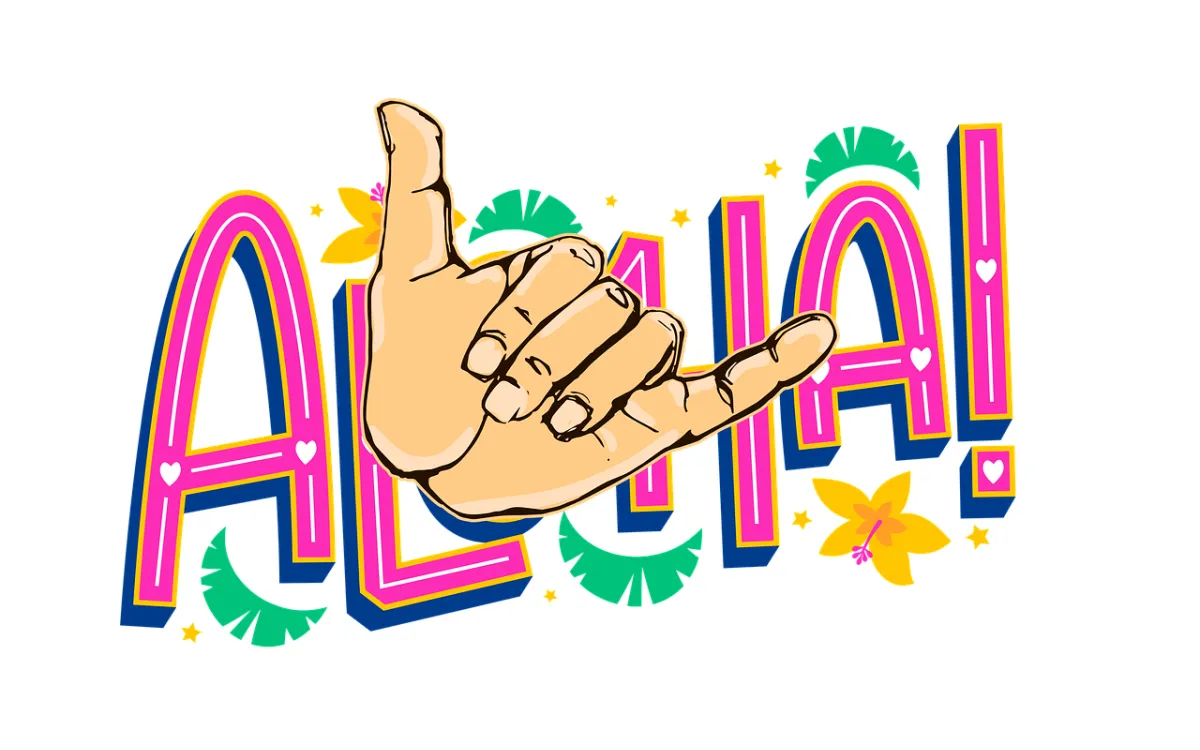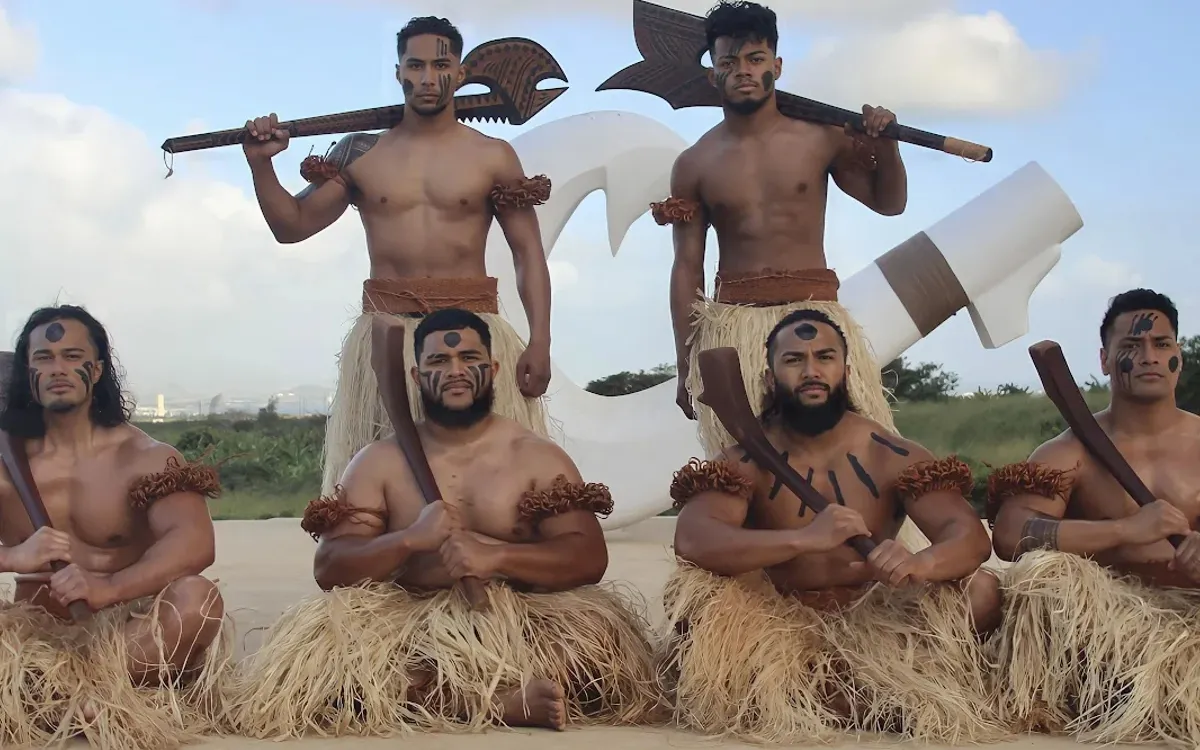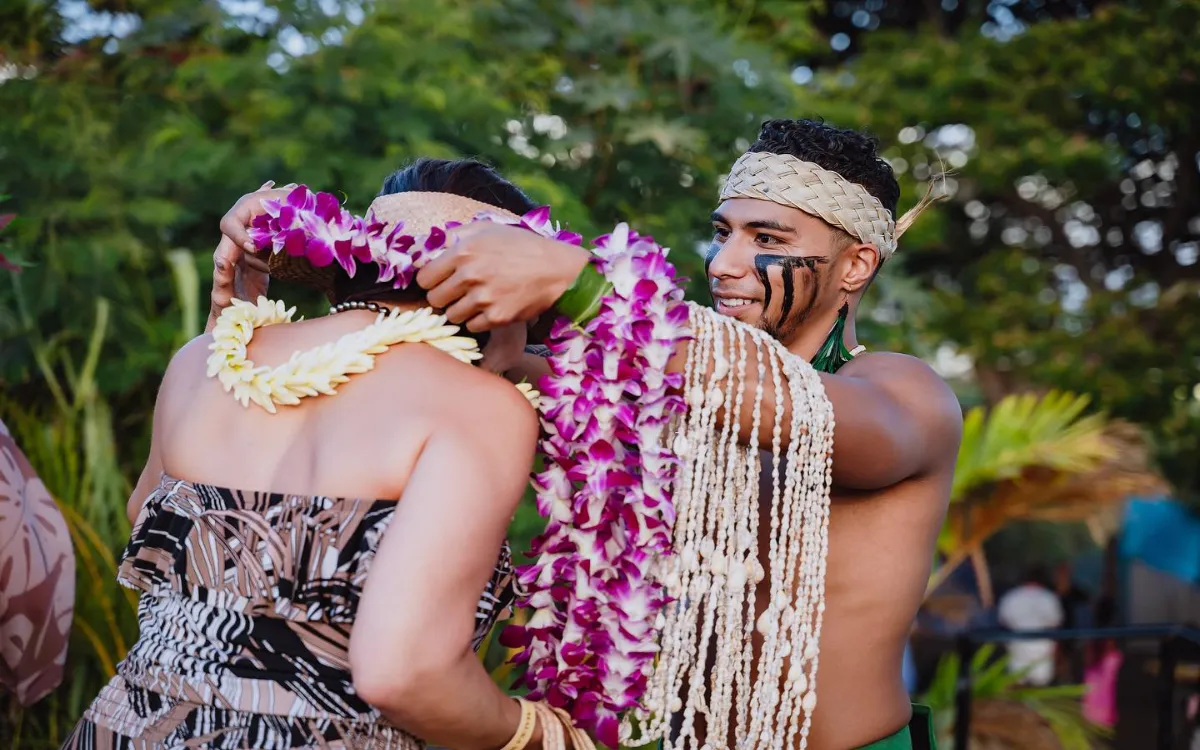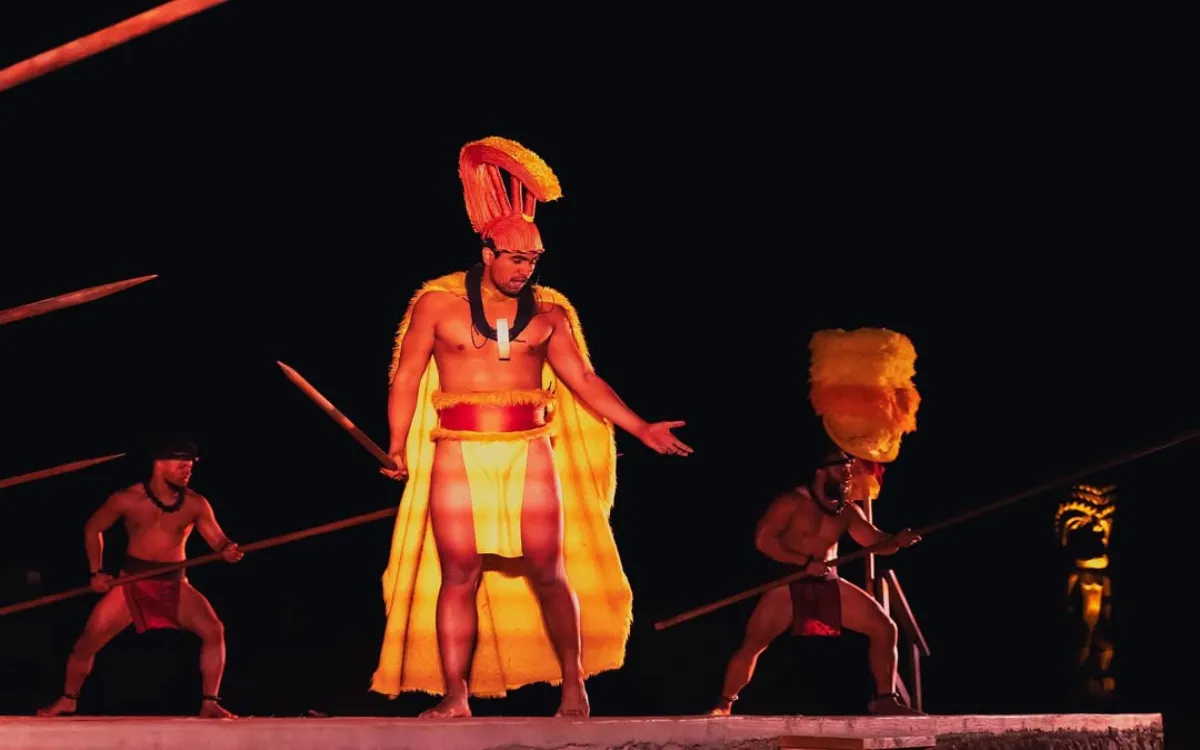Discover Mauka Warriors Luau: a unique Polynesian cultural experience, traditional buffet, and attractive deals. Find the best luau near me in Oahu now!
Polynesian symbols carry deep spiritual, cultural, and historical meanings for the Polynesian people. These symbols are often used in rituals, dances, clothing, and objects to express reverence for ancestors, deities, and nature. Below are some of the prominent symbols commonly seen at the Luau and their meanings:
1. Lei (Floral Garland)
Meaning: Lei is one of the most iconic and familiar symbols in Hawaiian culture. These garlands can be made from fresh flowers, leaves, seashells, or other natural materials and are worn around the neck, head, or wrist. Lei represents welcome, hospitality, and friendship.
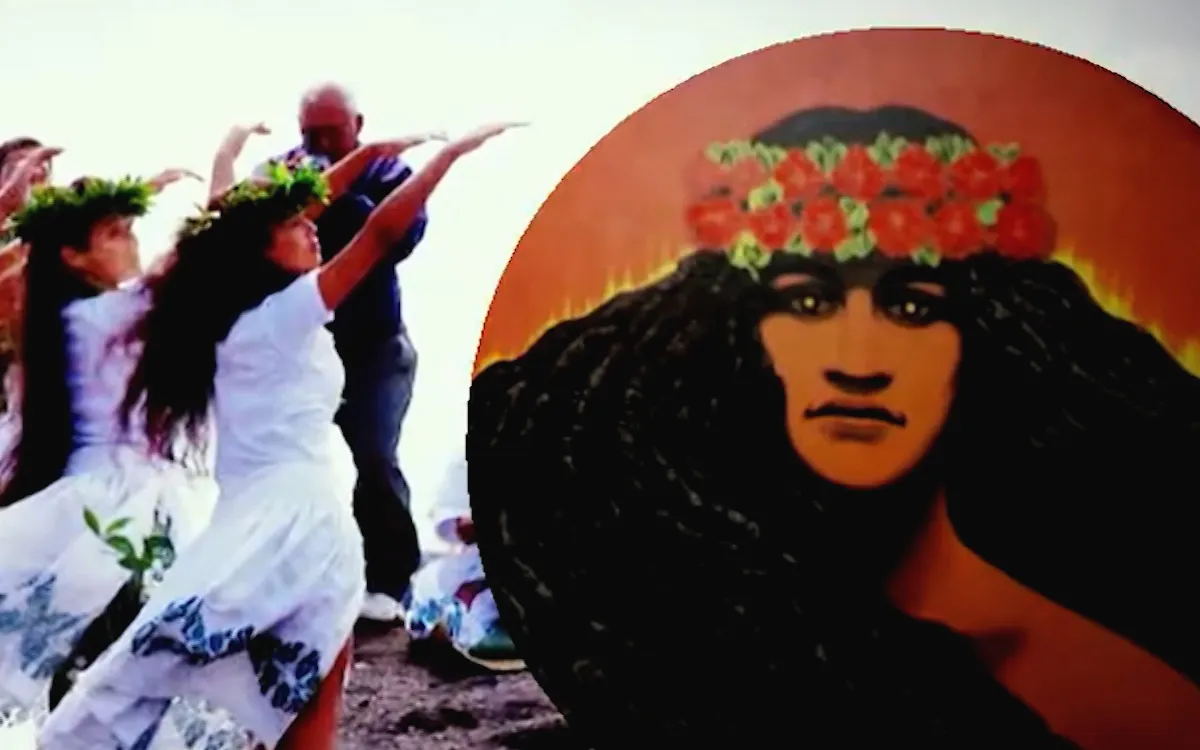
Lei is the most popular cultural symbol in Hawaii
At the Luau: During the Mauka Warriors Luau celebration, guests often receive a lei as a warm greeting. Each type of flower used in a lei can carry a different meaning—for example, plumeria symbolizes love and serenity, while wildflowers may represent resilience.
2. Tatu (Polynesian Tattoos)
Meaning: Tatu, or tattooing, has a long history in Polynesian cultures, with body art full of symbolic meaning. Each tattoo typically tells a story about ancestry, family achievements, or serves as a reflection of social rank, virtue, and warrior spirit.

Every tattoo tells a different story
At the Luau: These tattoos often appear on the costumes of participants, especially hula dancers. Tattoo motifs may include circles, ocean waves, arches, and natural elements such as the sun, moon, or divine figures. You can also join a temporary tattoo activity at Mauka Warriors Luau before the main celebration begins.
3. Heiau (Temple)
Meaning: Heiau are sacred temples in Hawaiian culture, built to worship gods and ancestors, as well as to hold prayer and offering ceremonies. These temples carry deep spiritual significance and are central to Polynesian religious beliefs.
At the Luau: During celebrations, elements of heiau may be recreated through the surrounding space, such as stone pillars, lanterns, and deity statues. Though not actual temples, the festive setting reflects reverence for the divine.
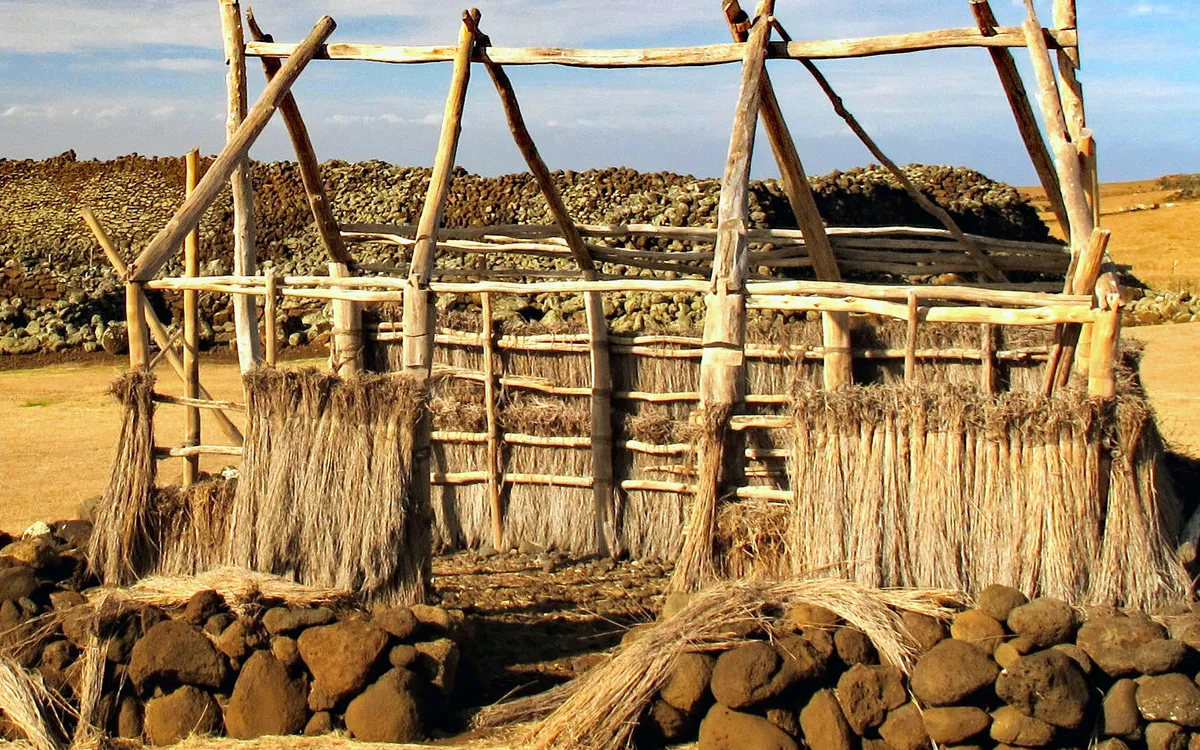
You wouldn't expect this to be a temple symbol in Hawaiian culture, would you?
4. Pahu (Drum)
Meaning: Pahu is a traditional drum in Polynesian culture, typically used in rituals and hula performances. Made from coconut trunks and fish skin, the pahu produces deep, powerful sounds believed to connect people with their gods and ancestors.
At the Luau: The sound of the pahu drum is not only musical accompaniment for hula dances but also carries spiritual meaning, representing the connection between the human world and the divine. At the Luau, the drum brings an energetic and sacred atmosphere to the celebration.
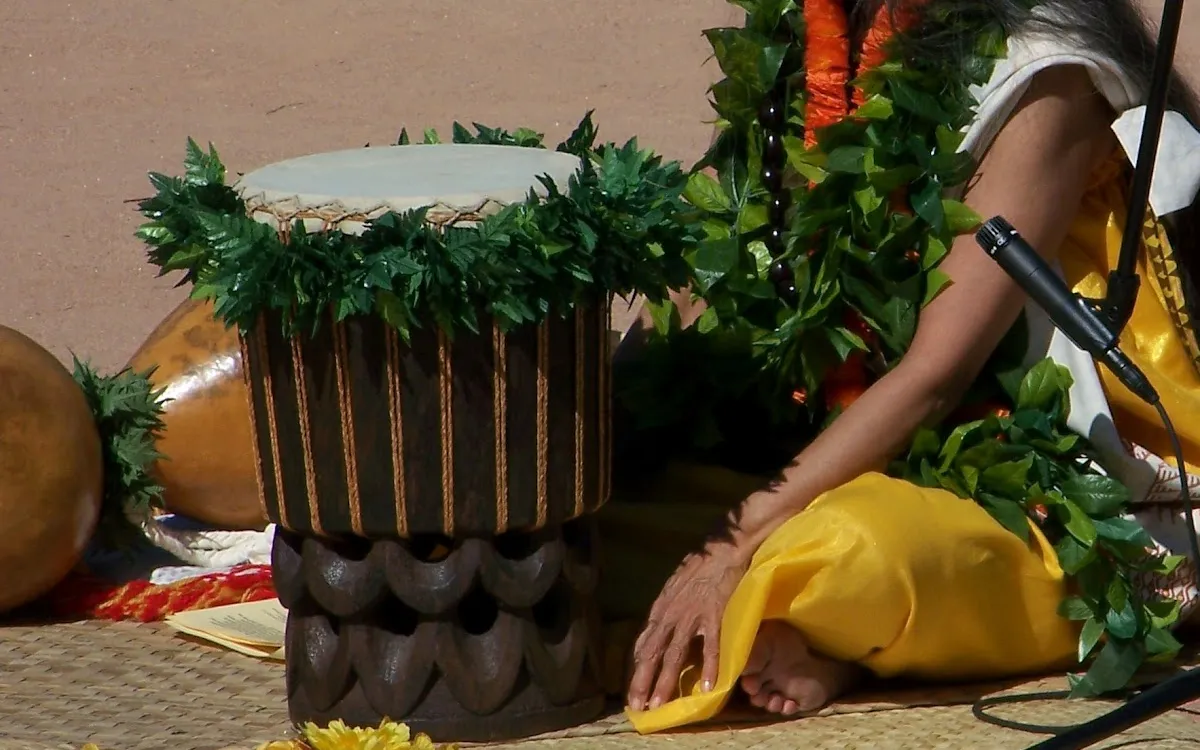
The Pahu drum appears with every Hula dance in Hawaii
5. Kukui (Oil Nut)
Meaning: Kukui is the nut of the kukui tree, traditionally used to make oil lamps, playing an important role in providing light during rituals or nighttime activities. Kukui also symbolizes guidance and protection, helping people move and work through the dark.
At the Luau: Kukui nuts or kukui lamps are used in festivals to create a warm ambiance and to represent the guiding and protective presence of ancestors.
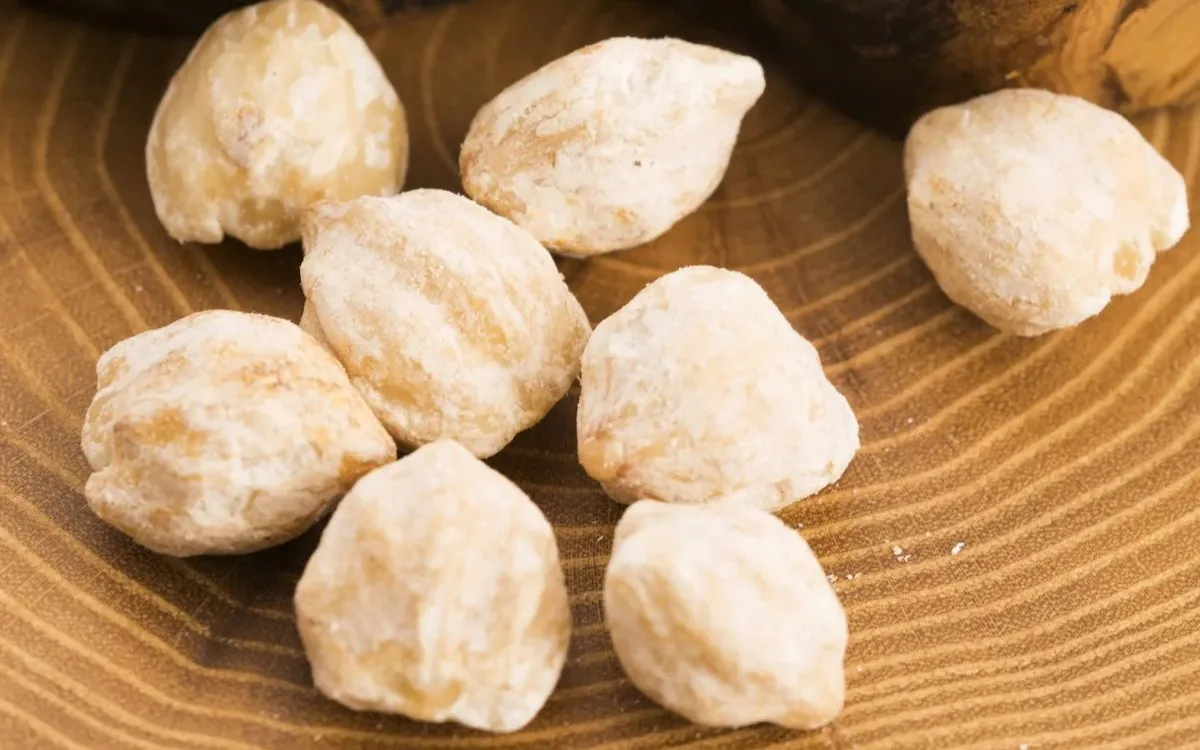
Kukui
6. Shark Teeth
Meaning: Shark teeth symbolize strength and bravery in Polynesian culture. They are considered sacred objects of warriors and are often used in jewelry or ceremonial attire. In many Polynesian legends, sharks are powerful and intelligent creatures, symbols of unmatched strength.
At the Luau: Shark teeth may appear on costumes or decorations at the Luau, as a tribute to the strength and resilience of Hawaiian warriors.
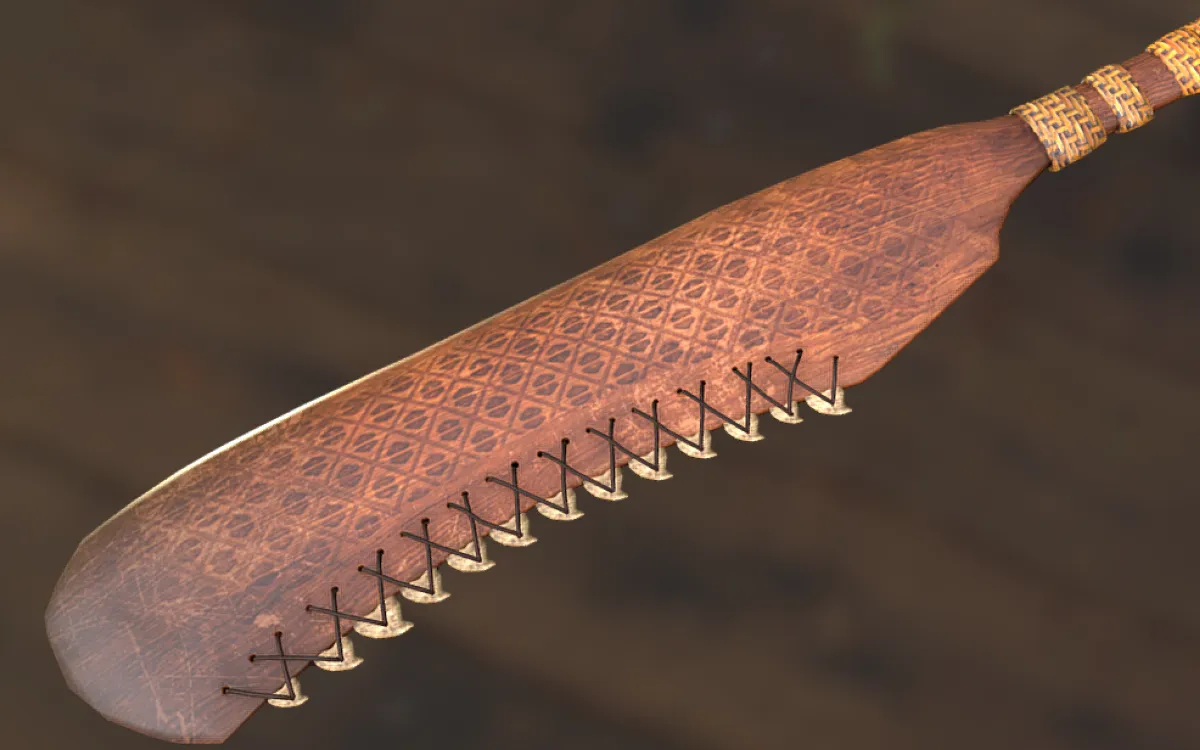
Polynesian weapons made from shark teeth
7. Tiki (God Figures)
Meaning: Tiki are carved statues, often made of stone or wood, representing protective gods who watch over and assist people. In Hawaiian culture, Tiki statues honor these deities and protect the community from harm.
At the Luau: Tiki figures may be seen as large decorative pieces in the Luau area or as smaller elements in the celebration space, adding a mythical and sacred atmosphere to the event.
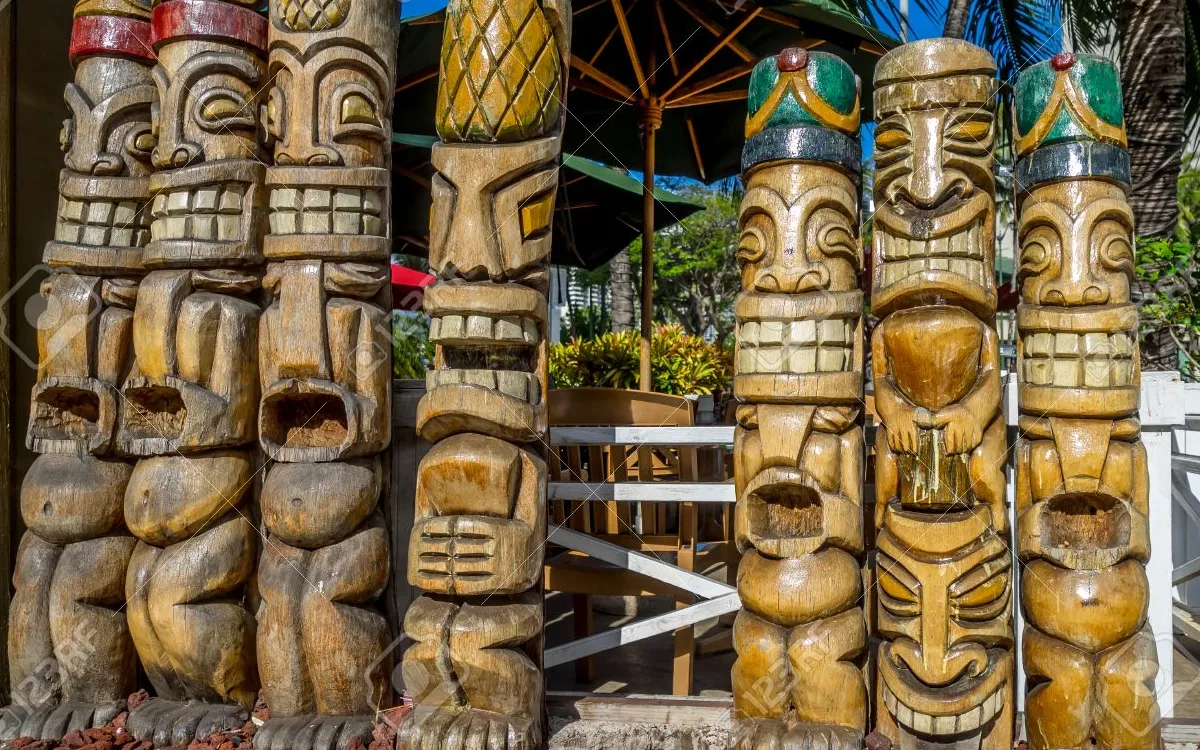
Tiki statues honor these deities and protect the community from harm
8. Moʻo (Lizard)
Meaning: In Polynesian mythology, moʻo (lizard) is a mystical creature, sometimes seen as the embodiment of gods or ancestral spirits. The lizard also symbolizes transformation and wisdom.
At the Luau: Moʻo may appear in festival decorations or objects to represent flexibility, intelligence, and hidden strength.
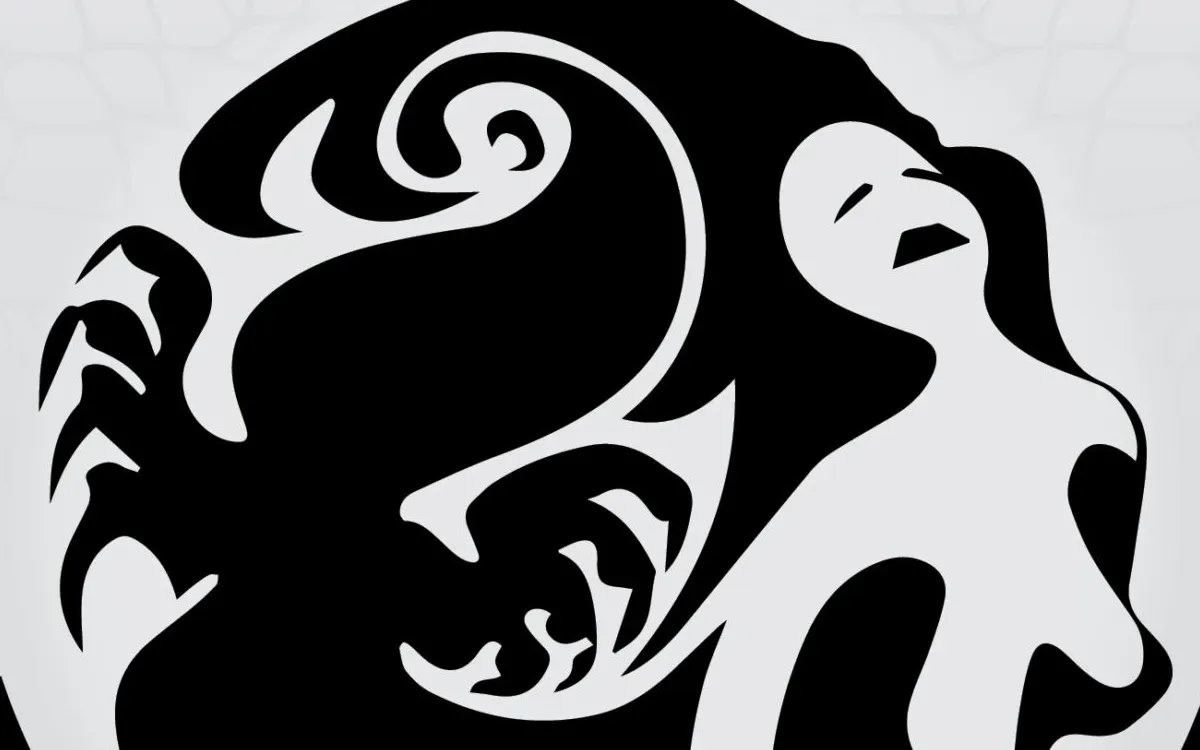
Moo Symbolism in Polynesian Tattoo Art
The Polynesian symbols at Mauka Warriors Luau are not merely decorative — they embody profound spiritual, cultural, and religious values of the Hawaiian people and the Polynesian islands. Each symbol carries its own meaning, expressing respect for nature, the gods, and the ancestors, while connecting people to the mysterious and powerful legacy of Polynesian heritage.


